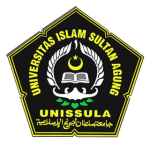Enhancing the tenth graders’ self-efficacy in learning Social Studies through technology-based pedagogies
DOI:
https://doi.org/10.61251/ijoep.v1i3.71Keywords:
self-efficacy, technology-based pedagogies, social studiesAbstract
This research aimed to improve students' self-efficacy in Social Studies using technology-based pedagogies. The study utilized mixed methods sequential explanatory design which involves quantitative and qualitative data. Pre- and post-assessments were used to measure the development of students’ test scores and supported by pre- and post-self-efficacy surveys to identify the changes in students’ levels of self-efficacy. The Wilcoxon signed-rank test was used to determine the significant difference in pre- and post-self-efficacy survey scores. At the same time a paired sample t-test was used to analyze the pre- and post-assessment scores. On the other hand, the data obtained from the interview on the students’ experiences was analyzed thematically using Colaizzi's descriptive phenomenological data analysis technique. Results showed that students’ self-efficacy in learning Social Studies has improved with increased student engagement, active participation, and a more vibrant learning environment while implementing the interventions. Furthermore, the study recommends that teachers integrate different technological tools in their classes to enhance students' self-efficacy.
References
Asogwa, U. D., & Echemazu, R. (2011). Effect of PowerPoint presentations on secondary school student’s achievement in Christian religious knowledge. International Journal of Education Research, 11(1), 22-32.
Ayas, C. (2006). An Examination of the relationship between integrating technology into social studies and constructivist pedagogies. The Turkish Online Journal of Educational Technology, 5(1), 14-25. https://eric.ed.gov/?id=EJ1102493
Bandura, A. (1977). Self-efficacy: Toward a unifying theory of behavioral change. Psychological Review, 84(2), 191–215. https://psycnet.apa.org/doi/10.1037/0033-295X.84.2.191
Camacho-Morles, J., Slemp, G., Pekrun, R., Loderer, K., Hou, H., & Oades, L. (2021). Activity achievement emotions and academic performance: A Meta-analysis. Educ Psychol Rev, 33, 1051–1095. https://doi.org/10.1007/s10648-020-09585-3
Demirören, M., Turan S., & Öztuna D. (2016). Medical students’ self-efficacy in problem-based learning and its relationship with self-regulated learning. Medical Education Online, 21(1), Article 30049. https://doi.org/10.3402/meo.v21.30049
Ertmer, P. A., & Ottenbreit-Leftwich, A. T. (2010). Teacher technology change: How knowledge, confidence, beliefs, and culture intersect. Journal of Research on Technology in Education, 42(3), 255–284. https://doi.org/10.1080/15391523.2010.10782551
Farısı, M. (2016). Developing the 21st-century social studies skills through technology integration. Turkish Online Journal of Distance Education, 17(1), 16-30. https://doi.org/10.17718/tojde.47374
Green, T., Ponder, J., & Donovan, L. (2014). Educational technology in social studies education. Handbook of research on educational communications and technology, 573-582. https://doi.org/10.1007/978-1-4614-3185-5_45
Harris, J. B., & Koehler, M. J. (2009). Teachers’ technological pedagogical content knowledge and learning activity types: Curriculum-based technology integration. Journal of Research on Technology in Education, 41(4), 393–416. https://doi.org/10.1080/15391523.2009.10782536
Hayes, A. (2023). Wilcoxon test: Definition in statistics, types, and calculation. https://www.investopedia.com/terms/w/wilcoxon-test.asp
Hermita, M., & Thamrin, W. P. (2015). Metacognition toward academic self-efficacy among Indonesian private university scholarship students. Procedia-Social and Behavioral Sciences, 171, 1075-1080. https://doi.org/10.1016/j.sbspro.2015.01.268
Kunter, M., Klusmann, U., Baumert, J., Richter, D., Voss, T., & Hachfeld, A. (2013). Professional competence of teachers: Effects on instructional quality and student development. Journal of Educational Psychology, 105(3), 805-820. https://doi.org/10.1037/a0032583
Mdhlalose, D., & Mlambo, G. (2023). Integration of technology in education and its impact on learning and teaching. Asian Journal of Education & Social Studies, 47(2), 54-63. https://doi.org/10.9734/ajess/2023/v47i21017
Mensah, R. O. (2020). The attitude of students towards the Learning of Social Studies and their performance: The case of Accra Metropolitan Assembly in the Greater Accra Region of Ghana. Mensah, Ronald Osei, The Attitude of Students Towards the Learning of Social Studies and Their Performance: The Case of Accra Metropolitan Assembly in the Greater Accra Region of Ghana (Feb 20, 2020). https://ssrn.com/abstract=3590977
Praveena, K. R., & Sasikumar, S. (2021). Application of Colaizzi’s method of data analysis in phenomenological research. Med Leg Updat, 21(2), 914-8. https://doi.org/10.37506/mlu.v21i2.2800
Sandars, J. E. (2005). Using WebQuests to enhance learning. Work Based Learning in Primary Care, 3 (3), 210–217.
Wang, A. I. (2015). The wear-out effect of a game-based student response system. Computers & Education, 82, 217–227. https://doi.org/10.1016/j.compedu.2014.11.004
Downloads
Published
How to Cite
Issue
Section
License
Copyright (c) 2024 Porferio S. Bandibas Jr., Berlie Ann F. Bedon, Ma.Glesilda N. Cabaltera, Jessa Betty Lloren, Lovely Joy M. Pacate, Jay C. Bansale

This work is licensed under a Creative Commons Attribution 4.0 International License.
The journal's license is under Creative Commons Attribution 4.0 International License that allows others to share the work with an acknowledgement of the work's authorship and initial publication in this journal.












